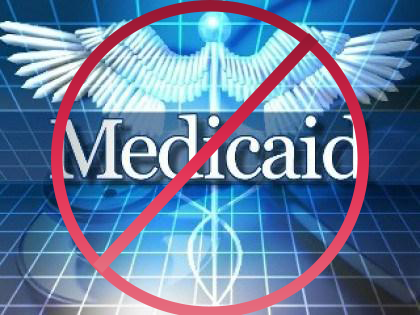Alliance Statement on House Passage of Reconciliation Bill
Medicaid Provisions Threaten Home and Community-Based Services for Millions of Vulnerable Americans
Alexandria, VA and Washington, DC, July 3, 2025. The National Alliance for Care at Home (the Alliance) issued the following statement today in response to the House’s passage of the “One Big Beautiful Bill Act,” also known as the Reconciliation bill, which now heads to President Trump’s desk for his signature.
“The Alliance is deeply troubled by the Medicaid provisions within the One Big Beautiful Bill Act, which has passed both chambers of Congress and now awaits President Trump’s signature,” said Alliance CEO Dr. Steve Landers. “These provisions—including work requirements, reduced provider taxes, and new cost-sharing mandates—prioritize short-sighted budget savings over the health and wellbeing of our most vulnerable citizens who rely on home and community-based services (HCBS).”
The Alliance Advocates for Care at Home
The home care community advocated throughout the legislative process for Congress to mitigate these harmful Medicaid provisions. The legislation will reduce state provider tax rates, cutting funding that states rely on to support HCBS programs. New work requirements and mandatory cost-sharing will also create administrative burdens for both providers and beneficiaries, likely resulting in coverage losses that extend beyond those directly targeted by these policies. Further, new limits on home equity for long-term care recipients will force older adults to sell their homes, leading to unnecessary institutionalization.
Continued Advocacy
“As these Medicaid provisions become law, the Alliance will work tirelessly to monitor their implementation and advocate for the protection of Medicaid enrollees, families, and providers nationwide,” said Dr. Landers. “We will continue to champion the delivery of HCBS – proven services that are preferred by beneficiaries and save the system money.”
Careful Consideration Needed

The Alliance calls on federal and state officials to implement these new requirements with careful consideration of their impact on vulnerable populations and to work collaboratively with providers to minimize disruption to essential services.
# # #
About the National Alliance for Care at Home
The National Alliance for Care at Home (the Alliance) is the leading authority in transforming care in the home. As an inclusive thought leader, advocate, educator, and convener, we serve as the unifying voice for providers and recipients of home care, home health, hospice, palliative care, and Medicaid home and community-based services throughout all stages of life. Learn more at www.AllianceForCareAtHome.org.
© 2025 The National Alliance for Care at Home. This press release originally appeared on The Alliance website and is reprinted here with permission. For additional information or to request permission to print, please see the contact information above.
Follow our continuous updates on the bill passage, what it means for Medicare and Medicaid, and how the provisions of the bill will be rolled out in our accompanying article here.








